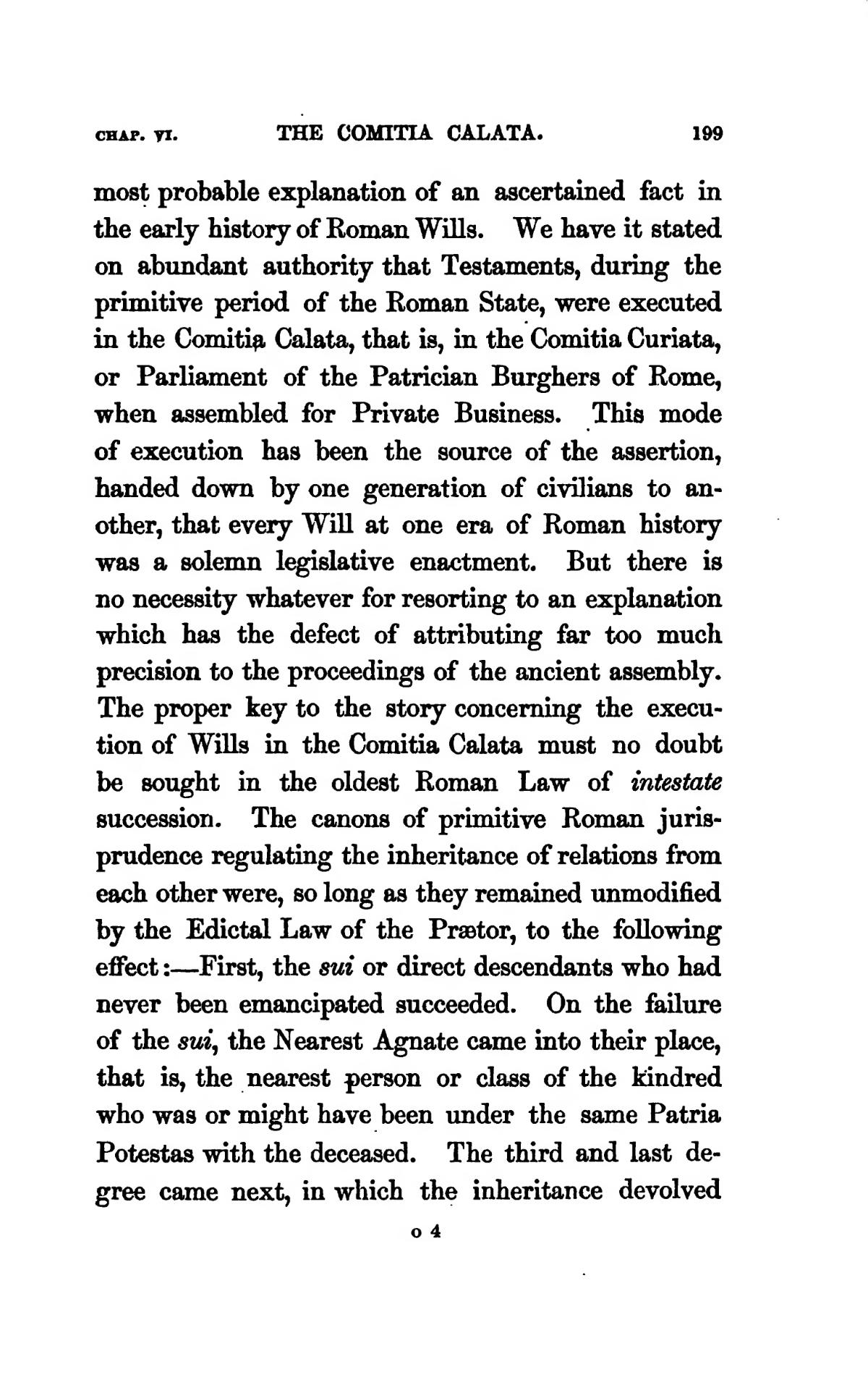most probable explanation of an ascertained fact in the early history of Roman Wills. We have it stated on abundant authority that Testaments, during the primitive period of the Roman State, were executed in the Comitia Calata, that is, in the Comitia Curiata, or Parliament of the Patrician Burghers of Rome, when assembled for Private Business. This mode of execution has been the source of the assertion, handed down by one generation of civilians to another, that every Will at one era of Roman history was a solemn legislative enactment. But there is no necessity whatever for resorting to an explanation which has the defect of attributing far too much precision to the proceedings of the ancient assembly. The proper key to the story concerning the execution of Wills in the Comitia Calata must no doubt be sought in the oldest Roman Law of intestate succession. The canons of primitive Roman jurisprudence regulating the inheritance of relations from each other were, so long as they remained unmodified by the Edictal Law of the Prætor, to the following effect:—First, the sui or direct descendants who had never been emancipated succeeded. On the failure of the sui, the Nearest Agnate came into their place, that is, the nearest person or class of the kindred who was or might have been under the same Patria Potestas with the deceased. The third and last degree came next, in which the inheritance devolved
O 4
